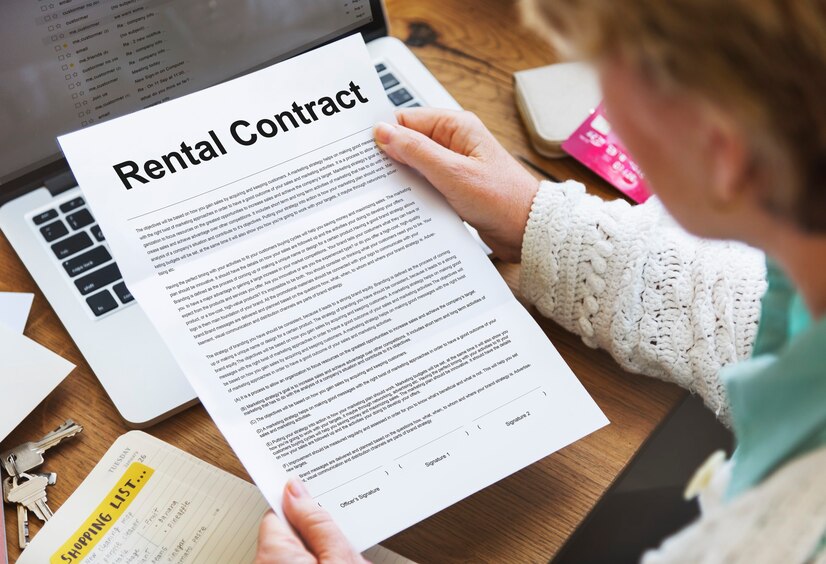Tenant Not Paying Rent? Here Are Your Options as a Landlord

Renting out property can be fulfilling unless tenants fail to pay rent. If you are a landlord dealing with a nonpayment of rent, then understanding all the options would suffice. Here, along with providing a formal Notice for nonpayment of rent, several other steps can help you resolve this issue.
1. Communicate Your Tenant
You should typically first open communication lines with your tenant before moving formal. Some financial or personal issues may temporarily inhibit their ability to pay the rent on time. You can agree on a short-term solution, like a payment plan or a delayed payment date. Keep written records of the conversations for later use.
2. Notice of Nonpayment of Rent
If the attempt to communicate is unsuccessful, a legitimate action to take is a Notice for nonpayment of rent. A notice formally informs a tenant that rent is outstanding and lists consequences likely to apply if the over-due rent remains unpaid. In New York, for example, in the New York State, a landlord has to serve his tenants with a 14-day notice before evicting them if they fail to pay the overdue rent. This service notice is an essential part of documenting that your tenant has not complied and that you will have made a good-faith effort to settle the matter amicably.
The Law Office of Shawn R. Kassman Esq can prepare and serve this notice so you comply with the letter of the law. Consulting with a lawyer will also ensure that your notice complies with local regulations and that you do not unwittingly abate your case against the tenant.
3. File a Holdover or Nonpayment Proceeding
If the tenant does not respond to the notice or pay the dues within the notice period, then there are two most preferred options available for landlords:
- Nonpayment Proceeding: This is an action where the main objective of the suit is to collect a past due rent. Here, a landlord must serve the notice for nonpayment of rent and separately file an eviction action in court. Once that notice is served and the tenant fails to pay, a landlord can file for an eviction. In some states, additional forms or time requirements apply, but this legal tool allows the landlord to regain lost rent.
- Holdover Proceeding: If the reason for ejecting the tenant arises after the lease has expired or if you require ejecting a tenant with a month-to-month tenancy who has become uncooperative, then use the holdover proceeding. The landlord would then give the tenant a 30-day notice of termination of the tenancy. They can be shown the door if they fail to follow the notice and leave the premises. This is a critical point to note: since rent can’t be recovered after giving a 30-day holdover notice, this method extensively focuses only on the eviction rather than recovering the previous amounts due.
4. File Lawsuit: Landlord File Suit for Unpaid Rent
A civil lawsuit may be appropriate for landlords seeking a judgment beyond eviction. Here, landlords can file a complaint in small claims or civil court against the tenant seeking a monetary judgment of unpaid rent. It might be more effective in recovering the payment after the tenant vacates the property since it provides the legal basis for collecting any outstanding balance.
There should be vigilance in filing a case: the aggregation of a lease agreement notice and proof of nonpayment against which the lawsuit is filed. We ensure the court documents are accurate, upholding all court norms. Seeking expert lawyer services during the litigation period raises the prospect of winning at the court of law.
5. Collection Options After Judgment
A judgment in court is collected after some time due to winning the case. If the tenant does not pay the judgment entered against them, there are other things the landlord may do:
- Wage Garnishment: Under the laws of some states, landlords can garnish a tenant’s wages to satisfy the unpaid rent. Some specific legal steps must be taken under this procedure, and garnishment laws differ from state to state.
- Bank Account Levy: If tenants have absconded or do not have a steady source of income, a landlord can apply for a bank account levy. Once granted, this directive will allow you to take money directly from the tenant’s bank account.
- Property Liens: In the case of tenant-owned property, a landlord can place a lien on a tenant’s assets. Though this won’t get you paid immediately, it does give you a legal encumbrance against the value of the tenant’s property.
We can help determine the best approach for your tenant based on their financial condition.

6. Analyze the Effect of the Tenant’s Financial Condition
Knowing the tenant’s financial history can inform your decisions. A tenant experiencing short-term financial difficulties may need a payment plan, while one chronically withholding rent will likely require a formal lawsuit. And if the tenant has filed for bankruptcy, collection may be even more limited. When unsure, discussing your case with a lawyer clears up the best course of action and what is likely to prevent unnecessarily costly legal mistakes.
7. Try Mediation and Settlement
There are specific scenarios in which a win-win solution obtains mediation. A third-party mediator will assist the landlord and tenant in agreeing on repayment or a workable alternative resolution. This is particularly helpful to those who shun court proceedings but still want an official, documented record of their agreement. If this is the case, the services offered at The Law Office of Shawn R. Kassman Esq. can have a contract drafted whereby your consumer rights are protected, even though a lawsuit is not an option.
8. Know Your Tenant’s Rights and Responsibilities
Being a landlord, you must ensure that they are conversant with a tenant’s rights, the terms of the lease, and the laws. Here are a few things to keep in mind:
- Needs Requirements: Notice Evictions must occur within the legally stipulated time and before you can be evicted. This is what will make your case ready for court.
- Forbidden Act: A landlord cannot harass, disconnect utilities, or change locks to make you leave. This is illegal and may attract fines or other penalties.
- Legal Paperwork: Keep all notices, correspondence, and lease agreements. These documents are indispensable if you issue a nonpayment notice or file a lawsuit to recover unpaid rent.
9. How the Law Office of Shawn R. Kassman Esq. Can Help
For a landlord, non paying tenants are rather frustrating and time-consuming. Whether you want to draft a notice for nonpayment of rent or need the option to take holdover, lawsuit, or any other course of action, The Law Office of Shawn R. Kassman Esq. has the professional, experienced team regarding these landlord-tenant laws to guide you through each step successfully.
Conclusion
A problem tenant who won’t pay rent creates problems, but you’ve learned from this chapter that landlords have various options to respond to that behavior. Whether you must do it via formal notice for nonpayment of rent, holdover proceeding, or else being forced into litigation, knowing your rights and the proper legal steps, one takes all forms as an essential part of protecting one’s property investment. Contact The Law Office of Shawn R. Kassman Esq.
Need Legal Assistance? Contact Us Today! 631-232-9479, Email: info@centralisliplawyer.com
Whether you’re dealing with Criminal Law, Divorce, Family Law, Estate Administration, Real Estate Law, Traffic Tickets, Real Estate & Landlord Tenant Law, Traffic Violations, DWI / DUI – Driving While Intoxicated, Driving With Suspended License issues, or need expert legal guidance throughout Suffolk County and Nassau County, the Law Office of Shawn Kassman is here to help. Visit us at: 83 Carleton Ave., Central Islip, NY.
